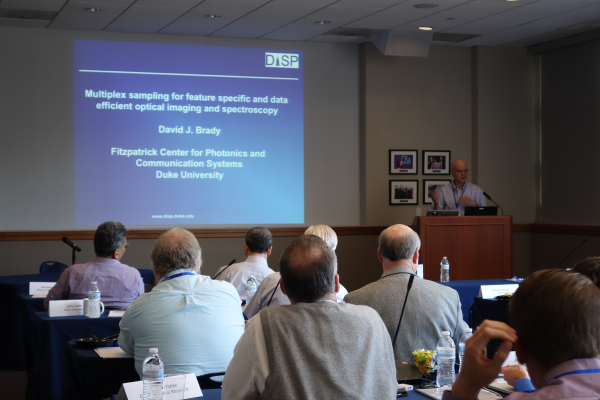Incubator meeting, Honest meeting
Miaochan Zhi
The chair’s message set the theme and the goals of this meeting:
- What are the concrete applications of Compressed Sensing (CS) to imaging? What is the advantage of CS?
- What are the underlying factors that leads to these advantages?
- What are the shortcomings?
- What are the challenges that remains?
Throughout the day it started to get clear to me what sets this Incubator apart from other conventional meetings. In a topical meeting, for example, there are multiple excellent papers presented that that detail different methods and demonstrate results. Here, the participants are still debating whether CS is practical or not, and if so in what situations.
The Incubator is structured to have two speakers present alternative views, followed by a panel discussion.
In the Medical Imaging panel, CS seems very promising. Emil Sidky, who works in the department of radiology at University of Chicago, showed how CS can help reduce the dose or enable new devices by reduce sampling during a CT scan. This is exactly what I thought that needs to be done during a recent visit at a dental office. The worst part of the visit is always taking X-rays.
Then Professor Lee Potter, Ohio State University, talked about both the pros and cons of using CS in RF Imaging. In short, he suggested everyone to reconsider data acquisition and nonlinear processing by cross-disciplinary interactions, since CS may seem irrelevant due to reasons such as nonlinear processing artifacts are foreign but by careful thinking CS is more than the old method of stretch, an old method and has been with us all along.
During the EO Imaging panel Michael Gehm, Duke University, showed a few concrete nice results of CS application but also how analyzing the various costs (components cost, organization cost…) CS may have advantages but that redundancy and reliability may also cause problems. A point that was countered by James Fineup, University of Rochester, who said that by definition, CS means fewer thus cheaper measurements. He concluded that CS is helpful and useful but will not revolutionize the field.
All of the sessions lead to heated, honest discussion and I am looking forward to the results from the 5 breakout sessions! Stay tuned.

